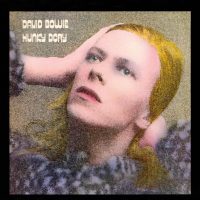 Written by: David Bowie
Written by: David Bowie
Recorded: 14 July 1971
Producer: Ken Scott, David Bowie
Released: 17 November 1971
Available on:
Hunky Dory
ChangesNowBowie
Look At The Moon! (Live Phoenix Festival 97)
Moonage Daydream
Divine Symmetry
Personnel
Contents
Mick Ronson: acoustic guitar
Trevor Bolder: bass guitar
Rick Wakeman: piano, Mellotron
Woody Woodmansey: drums
One of the highlights of David Bowie’s fourth album Hunky Dory, ‘Quicksand’ was the crystallisation of his key interests in 1971: the occult, Nazi Germany, Buddhism’s rebirth and renewal, mortality, and the Nietzschean concepts of the Übermensch and eternal return.
It’s my favourite track on the album. I love the imagery and lyrical content, “I’m sinking in the quicksand of my thought.” It’s just a great song. I think it’s Bowie at his best.
Kooks, Queen Bitches And Andy Warhol, Ken Sharp
The song is, at its heart, a moment of self-doubt for the 24-year-old Bowie, who fears his powers of creativity rested on unstable ground. The titular quicksand is the arena where his inspiration and songwriting skills might flounder and fail.
It is delicious irony, then, that a song lamenting a lack of inspiration serves as one of Hunky Dory’s most inspired moments. Bowie knew – or at least suspected – that he had “the potential of a superman”, and ‘Quicksand’ – as with ‘Changes’, ‘Life On Mars?’, and ‘The Bewlay Brothers’ – shows him pushing through beyond his previous capabilities to discover newfound powers and realise his potency as a songwriter and performer. His time as a cultural figurehead was to follow, but here he took a giant step forward.
The lyrics make reference to several of Bowie’s interests of the time: the occult, World War Two, Buddhism, and Nietzche’s concept of the Übermensch. None were new to Bowie – he had touched upon Buddhism and the occult on ‘After All’; Nietzsche on ‘The Supermen’ and ‘Oh! You Pretty Things’ – but here was his most explicit exploration, with namechecks for Aleister Crowley, Heinrich Himmler, Winston Churchill, and wartime spy Juan Pujol (codenamed Garbo by the British).
England is the strongest mystical force in the Western world. We don’t know it, none of us know it now, but it’s being revived gradually. There are so many empires of magical thought in our country that we’ve lost, forgotten through the ages.Do you know who else was very hot on England’s magical force? Hitler. He wanted to possess our country for that reason; he needed that power to develop his Aryan race. Himmler, his right hand man, sent over 117 million pounds of SS money trying to find the Holy Grail in England. In England, the Druids have access to a lot of the Nazi books. They were turned on to the idea of Homo Superior long before anyone else. They found out that that was what the Nazi thing was about and they just collected all the books before anybody else got interested in it, or even was aware that there was such a thing as Homo Superior.
Zygote, 1971
Bowie was something of a dilettante in the early 1970s, skittishly seizing concepts and ideas but often not fully understanding them. “Sometimes I don’t feel as if I’m a person at all,” he told Rolling Stone in a 1972. “I’m just a collection of other people’s ideas.”
Bowie: I didn’t get into Crowley by the way, because he uses too much Greek. I’m always very suspicious of anybody who says they’re into Crowley because they’d better have a pretty fair handle on Greek and Latin otherwise they’re talking bullshitBrett Anderson: You mention him in ‘Quicksand’.
Bowie: Yes… Haha! Caught out! Well, that’s before I tried reading him. Hahahaha! That’s when I had his biography in my raincoat so the title showed. That was reading on the tube. The irony is that I really didn’t see any political implications in my interest in Nazis. My interest in them was the fact that they supposedly came to England before the war to find the Holy Grail at Glastonbury and this whole Arthurian thought was running through my mind. So that’s where all that came from. The idea that it was about putting Jews in concentration camps and the complete oppression of different races completely evaded my extraordinarily f—ed up nature at that particular time. But, of course, it came home to me very clearly and crystalline when I came back to England.
NME, 20 March 1993
‘Quicksand’ was written during Bowie’s first visit to America in January and February 1971. It was the start of a fecund songwriting period, and he found many sources of inspiration as he traversed the country, visiting Washington, DC, Philadelphia, New York City, Detroit, Minneapolis, Chicago, Milwaukee, Atlanta, Houston, San Francisco, San Jose, and Los Angeles in under a month. “America was an incredible adrenaline trip,” he told Beat Instrumental in August 1972. “I got very sharp and very quick. Somehow or other I became very prolific. I wanted to write things that were more… immediate.”
Two demos of ‘Quicksand’, one recorded in early 1971 in Bowie’s San Francisco hotel, were released in the 2022 box set Divine Symmetry.
In 1971 David Bowie wrote notes on each of the Hunky Dory songs, which were used in press advertisements around the time of its release. For ‘Quicksand’ he wrote:
The chain reaction of moving around through out the bliss and then the calamity of America produced this epic of confusion – Anyway, with my esoteric problems I could have written it in Plainview – or Dulwich.There is a time and space level just before you go to sleep when all about you are losing theirs and whoosh void gets you with its cacophony of thought – that’s when I like to write my songs.
